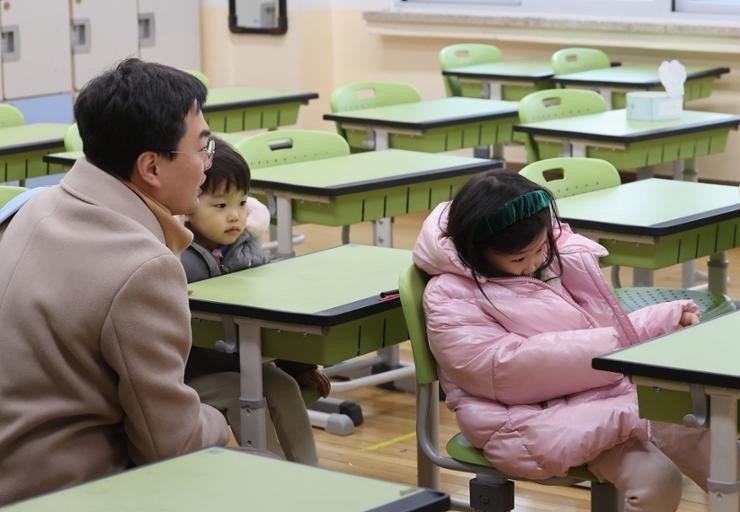
Korea: 92% of elementary school teachers oppose expansion of after-school programs
Latest
 |
| Children who will enter elementary school in March visit a classroom during an orientation event at an elementary school in Seoul's Seocho District, Jan. 4. (Source: Yonhap) |
Rep. Kang Deuk-gu of the main opposition Democratic Party of Korea disclosed the results of the survey conducted by a teachers’ group, saying, “The government should go back to square one and reconsider its after-school program expansion plan.”
The programs, which operate from 7 a.m. to 8 p.m., provide various education programs and child care services to elementary school students with working parents.
On Monday, President Yoon Suk Yeol and the Ministry of Education announced a plan to expand the programs to 2,000 elementary schools within the first half of this year and all schools in the second half, as part of efforts to combat the country’s declining birthrate. The measure came as child care issues have been cited as one of the major reasons for young couple not having babies.
But the survey of 15,000 parents of elementary school children, 11,000 teachers and 8,000 other staff in the education sector showed that 92.4 percent of the teachers opposed the expansion plan. In contrast, 49.6 percent of the parents gave positive responses.
The survey results aligned with concerns raised by various teachers’ unions following the government’s announcement. The unions claimed that the expansion of the programs would bring about increasing work burden of existing teachers and that the issue of where the responsibility will lie in the event of accidents has yet to be established.
Regarding this, 78.8 percent of the teachers responded in the survey that local governments should take responsibility for overseeing the programs.
On the other hand, only 26.7 percent of the parents said so. Instead, 34.3 percent and 17.8 percent of the parents chose civil servants in charge of the programs and teachers, respectively, as persons who should take responsibility for the programs.
In this regard, nearly 90 percent of teachers said the expansion of the programs will result in intensifying conflicts over division of labor between various parties involved such as teachers, administrative staff and civil servants.
“Education Minister Lee Ju-ho should stop pushing for the expansion plan against the will of teachers,” Rep. Kang said, urging the government to carry out more consultations with those involved.
Amid growing concerns, only 5 to 6 percent of the 604 elementary schools in Seoul have applied to operate the after-school programs as of Wednesday, according to the Seoul Metropolitan Office of Education.

















